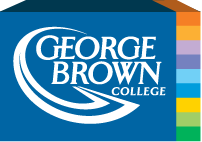About Mechanical Technician - Cnc And Precision Machining Program in George Brown College
Graduates from this program benefit from a combination of advanced machine-tool technology principles (CAD/CAM/CNC) and extensive hands-on manufacturing practices that better prepare them for the technical challenges they may face in the workplace.
Advanced CNC and Precision Machining students have the opportunity to strengthen their skills by engaging in specialized industry partnerships that include precision machining/welding workshops and formula race-car and rocketry manufacturing with University of Toronto Engineering and Aeronautics undergraduate students.
In their final year, students engage in applied projects to design and fabricate prototypes using digital manufacturing technology (lasers, 3D printer, multi-axis CNC machine tools).
All students will augment their technical training with courses in mathematics, communications, and general education.
PROGRAM STANDARDS AND LEARNING OUTCOMES
The graduate has reliably demonstrated the ability to:
- Complete all work in compliance with current legislation, standards, regulations and guidelines.
- Apply quality control and quality assurance procedures to meet organizational standards and requirements.
- Comply with current health and safety legislation, as well as organizational practices and procedures.
- Apply sustainability best practices in workplaces.
- Use current and emerging technologies to support the implementation of mechanical and manufacturing projects.
- Analyze and solve mechanical problems by applying mathematics and fundamentals of mechanics.
- Interpret, prepare and modify mechanical drawings and other related technical documents.
- Perform technical measurements accurately using appropriate instruments and equipment.
- Manufacture, assemble, maintain and repair mechanical components according to required specifications.
- Contribute to the planning, implementation and evaluation of projects.
YOUR CAREER
Graduates may find employment in areas such as:
- Aerospace
- Nuclear
- Transit and OEM automotive parts companies
- Health care
- Construction and building industries
- Electrical and electronics industries
- Mould-making
- Tool & Die Making
- General machining
- CNC precision machining and tool-making industries
- Research, prototyping and development of new and existing products
Academic qualification equivalents
- Have graduated from senior secondary school or equivalent (those applying for a postgraduate program must have graduated from a university or college)
English language requirements (one of the below):
- IELTS : 6.0, minimum 5.5 in each skill band
- TOEFL : 80 (Internet-based) minimum 20 in each skill band
- PTE : 54, overall minimum 50 in each skill band
George Brown College Highlights
| Type of College |
Public |
| Campus Setting |
Urban |
| Location |
Toronto, Ontario, Canada |
| Number of Campuses |
3 + 3 (location/centers) |
| Type of programs |
Certifications, Diploma, Degree, and Continuing Education |
| Number of full-time students |
32,000 + |
| Number of part-time students |
3,000 + |
| %age of International Students |
17% |
| Official Website |
www.georgebrown.ca |
George Brown College The Average Tuition Fees And Other Expenses
| Student Type |
Tuition Fee |
| Canadian students |
2780 - 15310 USD(two semesters) |
| International Students |
11,320 - 23,900 USD(two semesters) |
Tuition fees for some of the popular programs offered by George Brown College are mentioned below
| Course Name |
Tuition Fee(USD) |
| B.Com |
6,052 |
| B.Tech |
7,272 |
| BSN |
5,430 |
| Wireless Network(Postgraduate) |
4,365 |
| Construction Management(Postgraduate) |
6,183 |
| Marketing Management(Postgraduate) |
4,176 |
Residence Fees
Although rents may vary depending on quality and location, most rents listed by the Housing Service are within the following ranges:
| Accommodation Type |
Rent |
| Shared Accommodation |
500 - 700 USD per month |
| One - Bedroom Apartment |
900 - 1,200 USD per month |
| Two - Bedroom Apartment |
1,100 - 1,500 USD per month |
| Three - Bedroom Apartment |
1,300 - 1,800 USD per month |
Meal Plans
The college provide three types of meal plan options its students, the details of which are mentioned below:
| Plan Name |
Cost |
| Annual Swipe & Save Plan |
1700 USD |
| Semester Swipe & Save Plan |
850 USD |
| Swipe & Save Reloadable Card |
400 USD |
